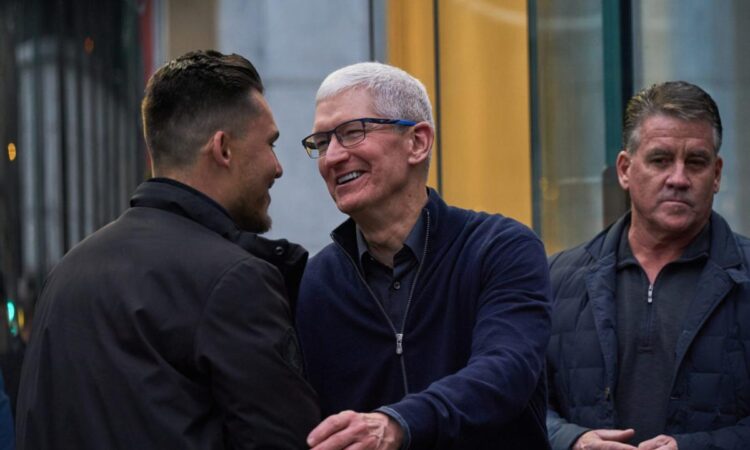
Good day—I’m David Meyer in Berlin, standing in for Peter today.
When Epic Games CEO Tim Sweeney yesterday described Apple’s reaction to its $2 billion (€1.8 billion) EU antitrust fine as “bitter griping,” it was hard to disagree. Apple’s statement accused Spotify—the complainant in the case, which revolved around Apple’s refusal to let streaming companies tell their iOS users about cheaper off-platform subscriptions—of “coordination with the European Commission.” It also accused the Commission of trying to enforce the EU’s blockbuster new tech antitrust law, the Digital Markets Act (DMA), before it comes into force on Thursday. Needless to say, Apple is appealing the fine.
As for Apple’s compliance with the incoming DMA, Tim Cook’s firm has taken as petulant a stance as it possibly could. The law wants Apple to allow third-party app stores on iPhones, so Apple introduced a new junk fee for developers who dare to use that new facility. The law wants Apple to let third-party browser developers like Google and Mozilla build their iOS browsers on engines other than Apple’s WebKit, so Apple implausibly claimed this also applies to the web apps that people can add to their home screens like regular iOS apps and killed those off in the name of security. The European Commission threatened an investigation, leading Cupertino to back off with its tail between its legs.
For Apple, which is desperate to maintain its ability to take a fat cut of all in-app transactions on iOS, almost everything about the DMA is just so unfair. Now, contrast this response with that of Google—which, unlike its rival, has already been through plenty of showdowns with the Commission’s antitrust directorate and is now billions of dollars poorer for it.
Here’s Google’s statement of DMA compliance, issued today. The tone is calm and measured. Android users will get to choose their search engines and browsers when they set up their devices, and Chrome users will also be prompted to choose their search engine on desktop and iOS. As for third-party app stores, well, Google already allows those, and it already lets developers offer their own billing systems for in-app transactions, without even having to offer Google Pay as an option.
“We have approached compliance with transparency and meaningful product changes, even where we have concerns that some rules will reduce the choices available to people and businesses in Europe,” wrote Google competition director Oliver Bethell. Point made, but it would be hard to call this malicious compliance—a characterization Sweeney and others have understandably applied to Apple’s DMA reaction.
It’s not like Google doesn’t have reason to be annoyed at Commission antitrust chief Margrethe Vestager and her team—after all, she may soon break up Google’s cash cow advertising technology business. But that threat is a very good reason to play nice. Apple, which I believe will soon find itself on the sharp end of a DMA investigation over the aforementioned junk fees, would do well to remember that thumbing one’s nose at Europe’s antitrust enforcers is rarely a winning tactic.
More news below.
David Meyer
This story was originally featured on Fortune.com






